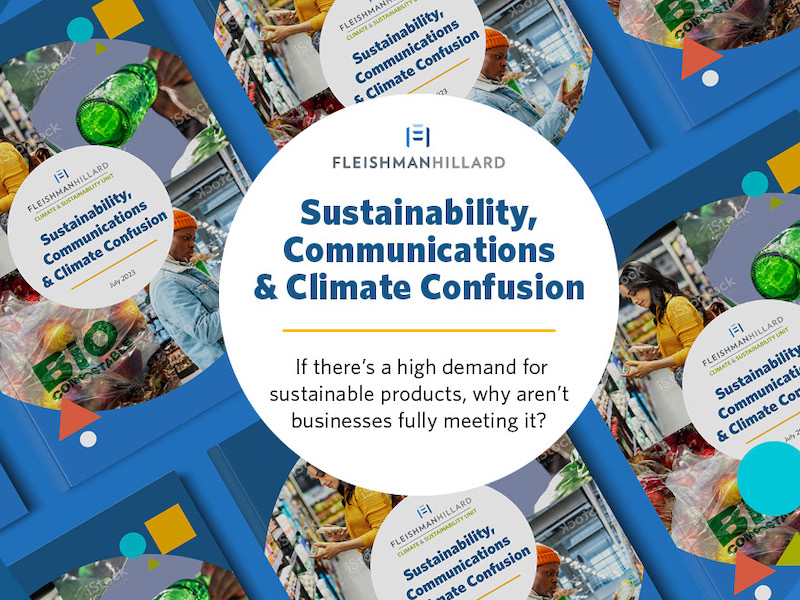Maja Pawinska Sims 27 Jul 2023 // 10:10AM GMT

LONDON — Most consumers don’t understand the environmental and sustainability claims used by food, drink and household products brands, according to new research by FleishmanHillard.
The Sustainability, Communications & Climate Confusion report finds that while 55% of the 2,000 UK consumers surveyed feel environmental sustainability is important when shopping, only 41% understand the term ‘certified carbon neutral’, for instance, on product packaging.
Even fewer – 35% – are confident they know what ‘carbon negative’ means, and only 28% understand climate footprint measurements referencing carbon dioxide.
The results come as the Advertising Standards Authority has updated its guidance to take a firmer line on unqualified environmental claims, in a bid to reduce greenwashing. The percentage of consumers saying they were confident they understanding of terms such as ‘from responsibly managed forests’ (45%), ‘made using less water’ (46%), ‘made with less plastic’ (50%) and ‘sustainably grown’ (51%) were a little higher.
Messaging around ‘made using plant-based ingredients’ (59%) and ‘fully or 100% recyclable’ (69%) were the most-understand claims covered by the research.
Many consumers, however, are willing to find out more about what sustainability claims really mean: 27% will search online to find more information, while 19% said they would visit a product’s website or social media channels (18%) to learn more.
FleishmanHillard sustainability communications specialist Imogen Sackey told PRovoke Media the report should encourage communications professionals to challenge environmental claims: “The fact that 48% of the British public somewhat or completely trust the environmental claims businesses make places a huge responsibility on communications professionals to ensure that belief is well placed. Particularly in an environment where trust in authorities to do the right thing for our climate is dwindling.
“We’ve all seen the damage that greenwashing can inflict on a business’ reputation, but also on the market they operate in. It can trigger a spiral of doubt which can in turn impact sales, stakeholder relationships and more. Any communications professional, whether a sustainability specialist or not, has to feel confident challenging any claims their business may want to make because specificity is king. Challenge doesn’t mean saying no, but rather: ask the hard questions, stay curious, understand the limits and opportunities.”
Sackey said the ASA’s latest guidance on ‘Greenspeaking with Confidence’ included new resources around climate communications, and added: “This doesn’t have to get in the way of good creative storytelling either. The right knowledge, if anything, can inspire new ideas and unlock a different way of seeing the world – and our place within it.”



































.jpg)

















